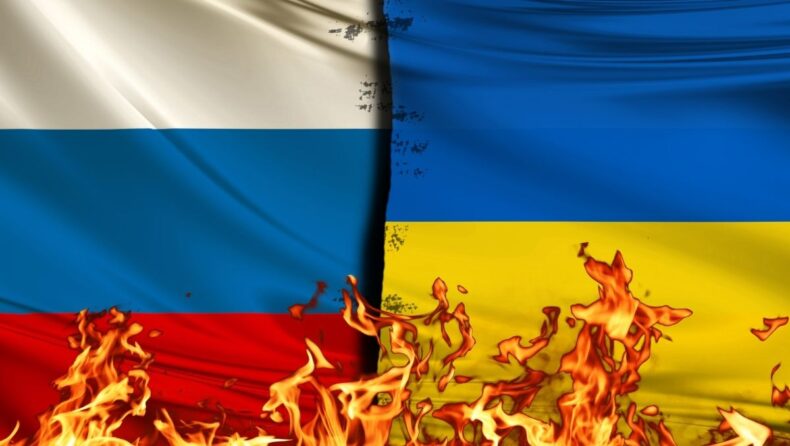Volodymyr Zelenskyy criticises NATO for refusing to impose a no-fly zone over Ukraine, while the UN Security Council condemns Russia’s attack on a nuclear power plant.
- Russia has declared a ceasefire in the cities of Volnovakha and Mariupol, both of which have been heavily bombed. State news sources said on Saturday that Russian soldiers would cease firing at 10:00 a.m. Moscow time, allowing humanitarian routes to exit Ukrainian cities.
- Both cities have been bombarded heavily. On Friday, Mariupol’s mayor pleaded for humanitarian corridors to allow people to evacuate and bring food and medical supplies into the city. After being attacked by Russian soldiers for the past five days, Mariupol has been without water, heat, or electricity, and is running out of food, according to the mayor. According to local MP Dmytro Lubinets, the onslaught in Volnovakha has been so strong that dead bodies have gone uncollected, those stuck in shelters are running out of food, and 90 percent of buildings have been damaged or destroyed.
- By ruling out a no-fly zone, Ukraine’s president, Volodymyr Zelensky, claimed Nato had given the “green light for more bombing of Ukraine.” “All the people who die from this day forward will also perish because of you, because of your weakness, because of your lack of unity,” Zelensky said of Nato’s refusal to enforce a no-fly zone over Ukraine.
- On Friday, Nato warned that implementing a no-fly zone in Europe may lead to full-fledged conflict with nuclear-armed Russia. “The only way to impose a no-fly zone is to send Nato fighter planes into Ukraine’s airspace and then shoot down Russian planes,” Nato Secretary-General Jens Stoltenberg stated. According to Stoltenberg, Nato foreign ministers debated a “no-fly zone” over Ukraine but agreed that Nato jets should not fly over Ukrainian airspace.
- The Zaporizhzhia nuclear power station in Ukraine, Europe’s largest, was taken by Russian forces on Friday after an attack that resulted in a fire near one of the complex’s six reactors. Although no radioactivity was released, Ukrainian officials said that personnel were unable to verify all of the safety infrastructures in the aftermath of the incident.
- Following the attack on the Zaporizhzhia power facility, the UN Security Council convened an emergency meeting. Linda Thomas-Greenfield, the United States ambassador to the United Nations, said the world narrowly avoided a “nuclear catastrophe” and called Russia’s actions “reckless” and “destructive.” The attack on the nuclear reactor, according to the US embassy in Ukraine, is a war crime.
- President Vladimir Putin of Russia has passed a slew of new regulations aimed at curtailing freedom of the press. As Russia presses on with its invasion of Ukraine, Putin signed a measure into law that imposes prison sentences of up to 15 years for anybody who broadcast “false information” about the Russian army.
- As a result, many outlets have ceased or reduced their coverage of Russia. The BBC, CNN, Bloomberg and the CBC have all indicated that their operations or broadcasts in the country will be suspended, citing the law as “criminalizing independent reporting in the country.” The Novaya Gazeta newspaper in Russia has announced that it will remove information about Russia’s military actions in Ukraine from its website.
- Access to Twitter and Facebook has been blocked by Russian official media censors. Roskomnadzor, Russia’s national media regulator, has restricted access to Twitter, while Facebook has been barred across the country.
- Putin also signed a bill that would make advocating for sanctions against Russia punishable by fines of up to three years in prison. Russia has been cracking down on independent and critical voices for the past year, and the crackdown has only gotten worse since the invasion began.
- A Russian airstrike attacked a rural residential area in the Kyiv region on Friday, killing seven people, including two children, according to Ukrainian authorities. According to police, the strike occurred in the village of Markhalivka, which is around 6 miles from the Ukrainian capital’s southwestern suburbs.
- After being attacked by Russian forces for the past five days, the Ukrainian city of Mariupol has no water, heat, or electricity, and is running out of food, according to its mayor in a televised appeal. He urged for a humanitarian corridor to be established to evacuate residents from the port city in the south-eastern part of the country.
- Since Russia’s full-scale invasion on February 24, more than 1.2 million people have fled Ukraine to neighbouring countries, according to the UN, including over half a million children.
Edited By- Subbuthai Padma
Published By- Satheesh Kumar













